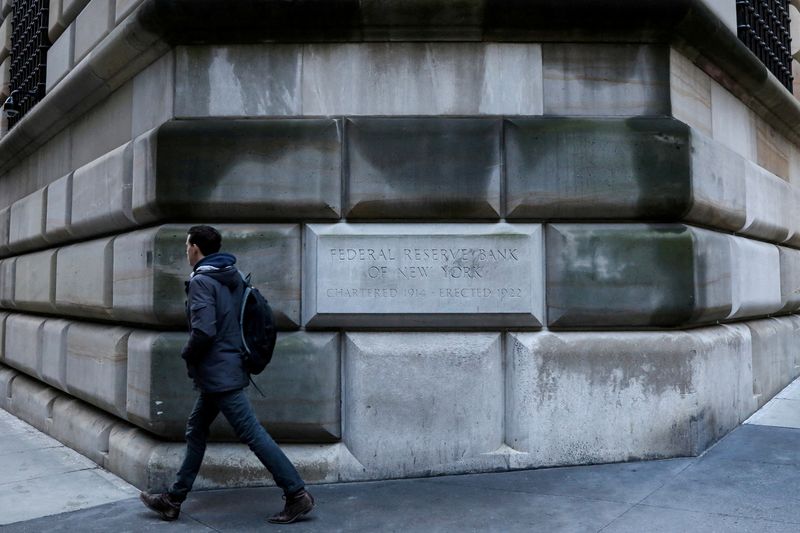By Michael S. Derby
NEW YORK (Reuters) -Americans’ outlook on inflation was little changed last month as households upgraded their views on the state of their finances and ability to get credit, according to a report released on Tuesday by the New York Federal Reserve.
As of June, inflation one year from now was expected to be 3%, down from the expected 3.2% in May, while the outlooks at the three- and five-year-ahead horizons were unchanged at 3% and 2.6%, respectively, according to the latest New York Fed Survey of Consumer Expectations.
Amid the calm outlook for future price increases, the survey found that respondents had “markedly” upgraded their assessment of their personal financial situation relative to last year, while noting credit had grown easier to access. Respondents also upgraded their expectations about the state of their financial situations a year from now.
The survey found mixed expectations for future earnings and income in June, while the outlook for employment improved.
In a separate report, the Philadelphia Fed said that in the first quarter the share of credit cards in some sort of delinquency retreated for the first time since the closing three months of 2021. It also said that the rates being paid on credit cards are the highest since 2012, at an average of 24.62% during the first quarter, compared to an average of 20.14% during the pandemic period.
While the New York Fed found in its poll that the public’s outlook for inflation was little changed last month, households projected in June an acceleration in year-ahead gains in the cost of gasoline, medical care, college and rent, while the expected rise in food costs held steady relative to May.
Near-term inflation expectations recorded by the New York Fed have been volatile this year as President Donald Trump launched an aggressive trade war against many U.S. trading partners. The president’s trade agenda, which features the imposition of high tariffs on imported goods, is widely expected to push up inflation and depress growth and hiring.
Those import levies helped drive up near-term expected inflation. As Trump appears to have capitulated so far on the most draconian of his levies, worries about higher inflation have eased. Other surveys like the University of Michigan report on consumer sentiment have also shown reduced worries about future inflation.
Meanwhile, long-term inflation expectations have remained mostly stable. This is good news for Fed officials, who believe that development suggests confidence that inflation will not be a major long-term concern.
Story Continues
